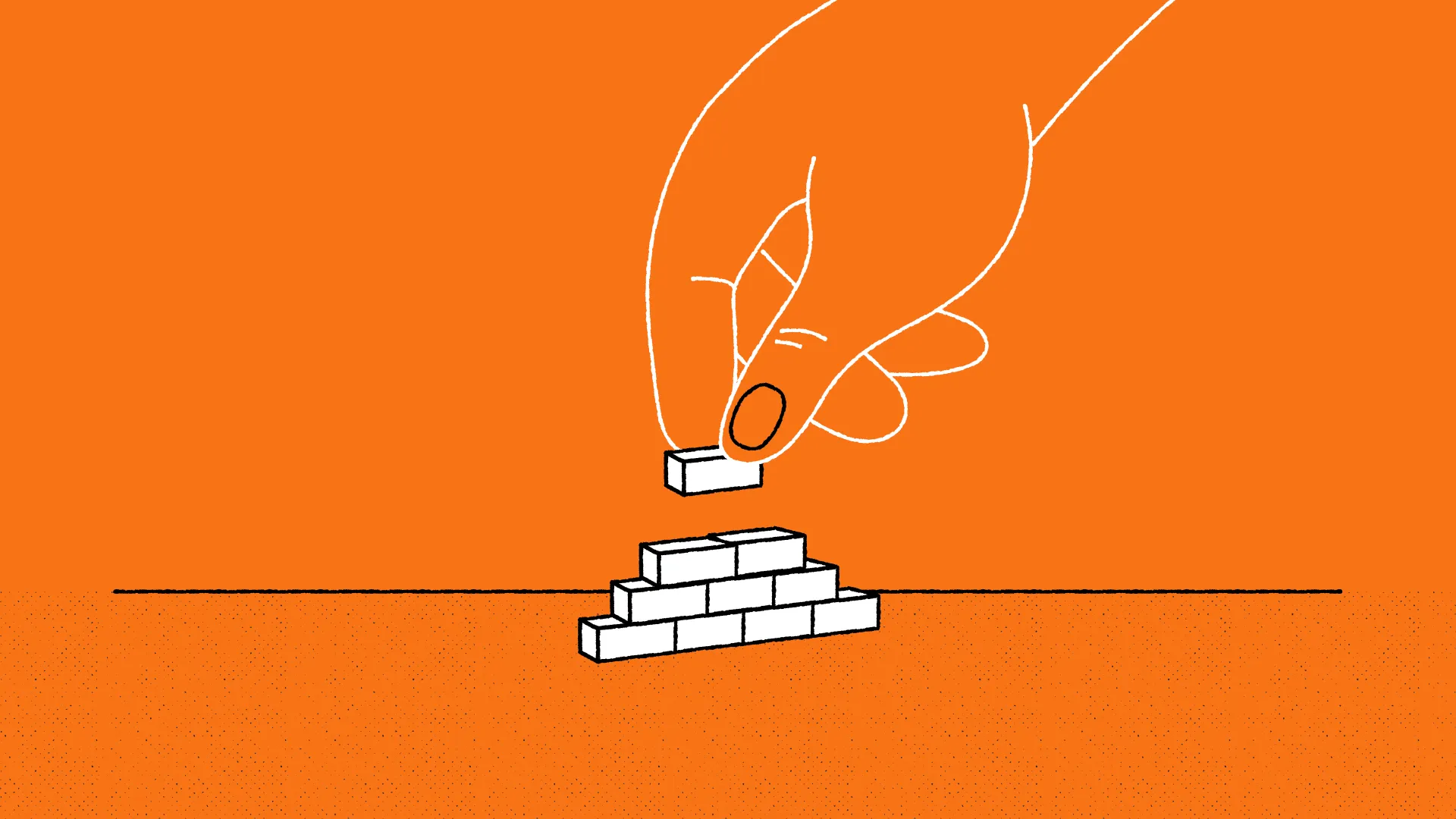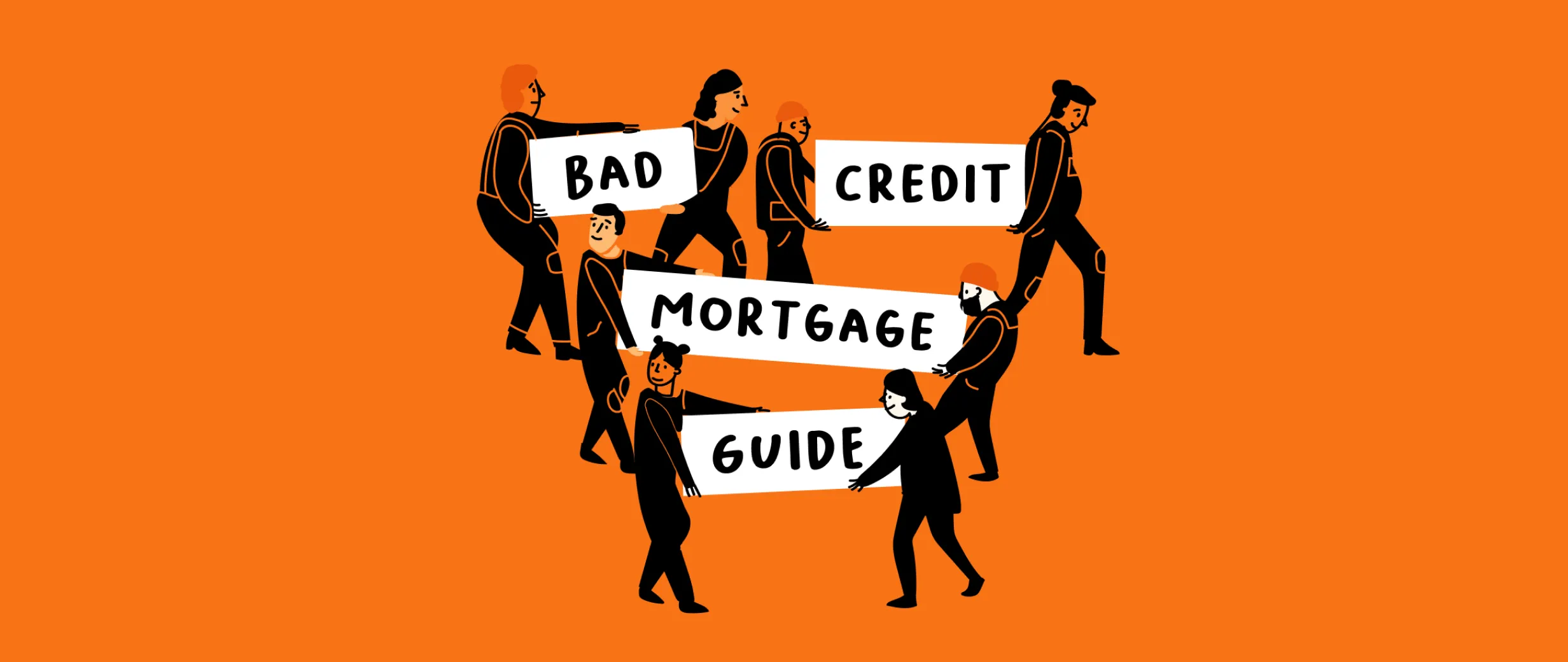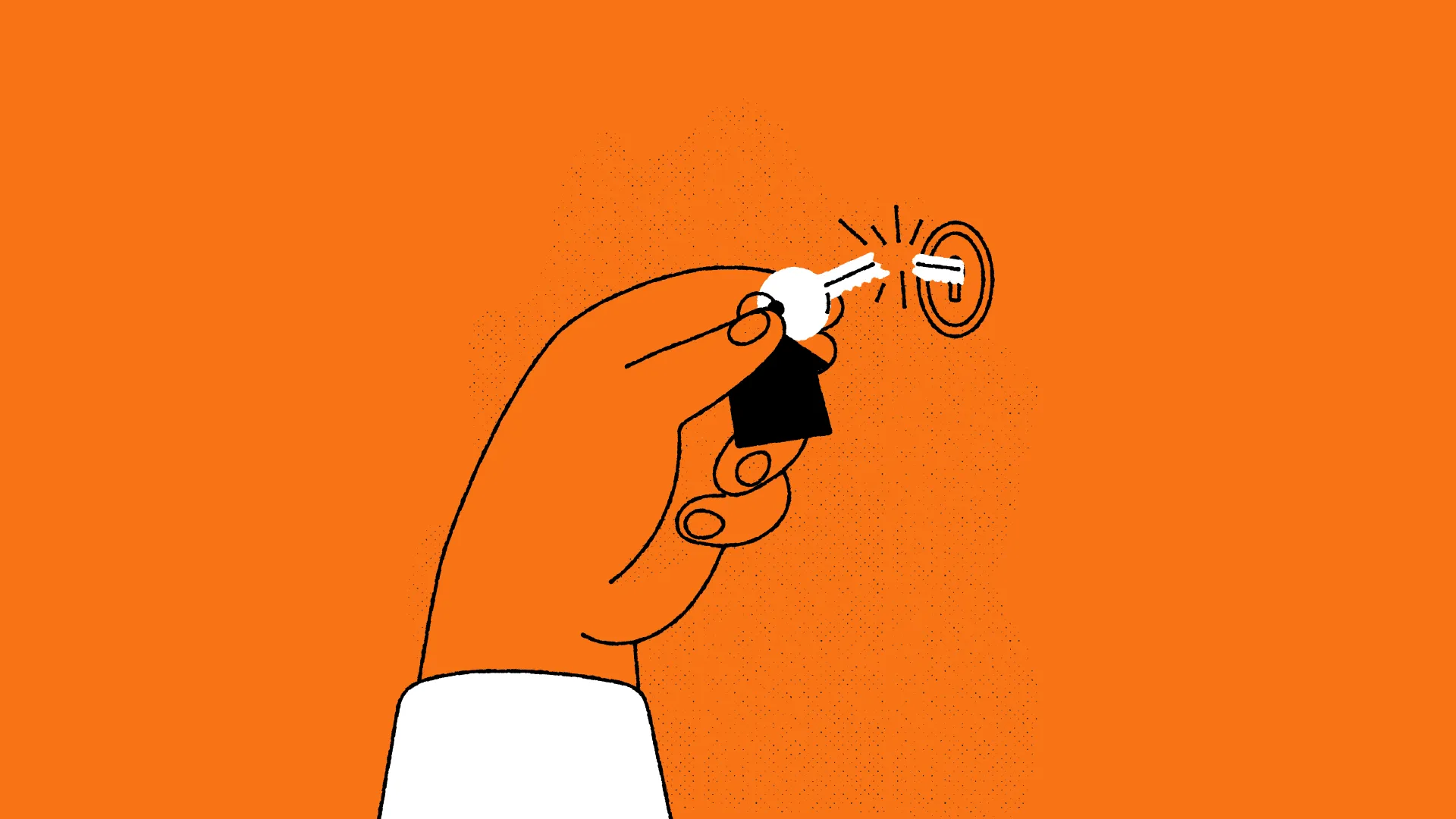Can You Get a Mortgage With An IVA?
An Individual Voluntary Arrangement (IVA) shouldn’t have to feel like a permanent roadblock to getting a mortgage. Find out how Haysto could help you.
Your home may be repossessed if you do not keep up repayments on your mortgage.
Exclusive broker partner to

8 mins
Updated: Nov 16 2025
8 mins
Updated: Nov 16 2025
On this page
Please be aware that by following any external links you are leaving the Haysto website. Please note Haysto nor HL Partnership Limited are responsible for the accuracy of the information contained within external websites accessible from this page.
On this page
What is an IVA?
An Individual Voluntary Arrangement (IVA)* is a legally binding agreement between you and your creditors to repay all or part of your debts. Typically lasting for up to five years, your IVA payments are made monthly to an Insolvency Practitioner who divides this money between your creditors.
IVAs are typically used to repay unsecured debts, such as:
Credit cards
Bank overdrafts
Personal loans
Utilities and Council Tax arrears
Money owed to HMRC
Debts secured against your property, like a mortgage or other secured loan, and other financial commitments, such as student loans or child support, can’t be repaid using an IVA.
The Insolvency Practitioner contacts the creditors on your behalf to get their agreement for the IVA to start. If there’s multiple creditors, the one(s) holding 75% of your outstanding debt must agree to the IVA for it to be put in place.
The monthly payments into an IVA are based on what you can afford, and any leftover debt is written off at the end of the term. As long as you keep up with your repayments, an IVA prevents your creditors from taking any further legal action against you for your debts. If you fall behind with the repayments, your Insolvency Practitioner can cancel the IVA and recommend bankruptcy.
Does an IVA affect your credit score?
Yes, it does. An IVA is seen as one of the more severe forms of bad credit and will reduce your credit score whilst it remains on your record. This will make applying for further credit, such as a mortgage, more difficult but not impossible.
With a smaller group of lenders available, if you can secure a mortgage, the interest rates and size of the deposit required will likely be higher than for someone with a perfect credit score to cover the perceived additional risk for the lender.
How long does an IVA stay on your credit file?
An IVA remains on your credit record for six years from the date it’s first registered. Once the outstanding debt has been repaid, it will be marked as' complete', but it will still stay on your report and affect your credit score until the six years have passed.
Access Your Credit Report
To get a full view of your credit information from all three agencies, use Checkmyfile free for 30 days, then £14.99/month (cancel anytime).
Get Started NowCan you get a mortgage with an IVA?
Yes, it’s possible. Although most high-street lenders will likely reject you for a mortgage with an IVA on your Credit Report, plenty of specialist mortgage lenders will accept applicants after an IVA debt has been fully repaid and discharged despite it still showing on your record.
These specialist lenders are only usually available through a mortgage broker. So, your chances of getting a mortgage after an IVA will be far greater if you speak with a broker - like us! - who already knows which lenders can accept applications for this type of credit issue.
How long after an IVA can I get a mortgage?
This varies from lender to lender. For almost all mainstream lenders, it can take until the IVA is removed from your credit history before you can get a mortgage. But, there are specialist lenders who will accept you for a mortgage with a satisfied IVA still registered on your record.
Most high-street banks and building societies will see an IVA on your Credit Report as an immediate red flag and reject your application. Rather than adopting a ‘computer says no’ approach, specialist lenders apply more of a human touch and use their expertise with bad credit issues by assessing applications on a case-by-case basis.
For IVAs, this means looking more closely at:
When the IVA was first registered
How long it's been since the IVA was fully repaid and discharged
What were the circumstances surrounding the IVA initially
In addition to your credit score, a specialist lender will also take into account all other aspects of your application before reaching a decision, such as:
Your age
Employment record
How you’ve managed your finances since the IVA
Your income and outgoings
The size of your mortgage deposit
The type of property you’re looking to buy
If you’re looking to get a mortgage with an IVA, it’s wise to speak with a mortgage broker before approaching a lender directly.
If you contact us, we’ll arrange for one of our Mortgage Experts, who has experience helping people in the same situation get the mortgage they need, to contact you and look at how we can help you, too.

Let's Get Started
We Make Mortgages Possible
Our Mortgage Experts are fully qualified with experience in bad credit, self-employed and complex mortgages. They have a proven track record of getting mortgages for people who’ve been rejected elsewhere.
Get Started Now Get Started NowWill an IVA affect my current mortgage?
No, if you already had a mortgage before taking an IVA to repay other outstanding debts, it won’t have any negative effect. However, the Insolvency Practitioner might instruct you to release some of the equity in your property to help repay the debt.
At some point, an IVA could affect your chances of securing the most competitive remortgage deals if it shows on your credit record when your current deal is ending and you’re looking to renew your existing arrangement.
If you’ve had an IVA since initially taking out your mortgage, it’s strongly recommended that you plan well ahead, at least six months before your existing deal comes to an end, and speak with an experienced bad credit mortgage broker to discuss your options.
How to improve your chances of getting a mortgage after an IVA
If you want to get a mortgage and still have an IVA on your credit record, you can do several things to give yourself the best chance possible. These include:
Repay your IVA debt and get a completion certificate. If you haven’t fully repaid the debt owed to your IVA, this is the first step to take. Only with a satisfied IVA will you have any realistic chance of getting a mortgage from any lender. Once you’ve made your final payment, you should receive a completion certificate in the post from your Insolvency Practitioner. If you haven’t received one after a couple of months, you can follow up with the court to ask when you’ll receive it.
Download your Credit Reports**. If you’ve only recently received your completion certificate, you should check your credit record to confirm it now reflects that your IVA has been marked as ‘complete’.
Take time to rebuild your credit score. Once you’ve completed your IVA, you need to be patient and spend time repairing your credit score before attempting to apply for a mortgage. Most lenders will want to see a steady financial record of at least 12-24 months since the IVA was repaid. Positive steps include checking you’re registered to vote at your current address*, paying all your bills on time and repaying any credit cards every month.
Save for a deposit. Once you’re free from your IVA repayments, you can focus on saving up for a mortgage deposit. The more deposit you have, the stronger your application will look to more mortgage lenders.
Speak to a mortgage broker who specialises in mortgages with an IVA. Seeking advice from an expert rather than approaching a lender directly is the right move, particularly in cases involving an IVA. They’ll be able to advise you on how to prepare your application and which lenders will be most likely to accept it.
**When you click through to our affiliate links, we may earn a small commission at no extra cost to you. We only recommend sites we trust and believe in.
Which mortgage lenders will accept applicants with an IVA?
Several specialist mortgage lenders will accept applications from people with a satisfied IVA still registered on their credit file. These include (but aren’t limited to) Aldermore, Bluestone Mortgages, Pepper Money, and West Bromwich Building Society.
All of the above mortgage lenders work exclusively with brokers and have a proven track record of success in helping applicants with this type of credit issue.
If you make an enquiry, one of our Mortgage Experts will be able to assess your current situation and offer guidance as to which lender is best placed to help you get the mortgage you need.
Can you get a mortgage with an unsatisfied IVA?
It’s doubtful you’ll be able to get a mortgage while still making payments to an IVA. Most, if not all, mortgage lenders would see this as too big of a risk. Also, your Insolvency Practitioner would typically have placed restrictions on the amount of credit you’re allowed while the IVA is still unsettled (usually up to a maximum amount of £500).
The terms of the IVA would likely state that any disposable income over and above what’s required for your day-to-day living expenses should go towards repaying your outstanding debts.
How Haysto could make your mortgage possible
At Haysto , we understand that complex credit issues like Individual Voluntary Arrangements (IVAs) require a more patient approach to achieve the desired outcome.
When you contact us, we’ll make sure you’re matched with one of our fully qualified Mortgage Experts. They have specific experience arranging mortgages for people after an IVA and will understand what’s required to make your mortgage possible, too.
Each of our customers gets four experts working on their case. Our dedicated team will guide you through the whole mortgage process from start to finish, including:
Ensuring your mortgage application is prepared correctly for this type of credit issue and ready for submission within 24 hours
Searching the mortgage market to help find the right lenders who will accept applicants with an IVA
Providing a valid Agreement In Principle (AIP) - one you can trust directly from a lender
£100 gift card if we can’t make your mortgage possible, but another broker can
Just get in touch, and one of our Mortgage Experts will contact you immediately to explore your options. Rest assured, if there’s a mortgage solution out there for you, we’ll find it.
We Make Mortgages Possible
Our Mortgage Experts are fully qualified with experience in bad credit, self-employed and complex mortgages. They have a proven track record of getting mortgages for people who’ve been rejected elsewhere.
Get Started NowAny questions?
We're a judgement-free zone. If you still have questions, we've heard most of them before. Here are some of them answered by our team of experts.
Yes, it’s possible. But, the same principles apply whether it's a sole or joint application. The IVA would need to have been satisfied, ideally for at least 2-3 years, with no further blemishes on your credit record during this period.
You’ll have a better chance of getting the mortgage you need at this stage. You’ll fare even better if you approach a mortgage broker first rather than applying directly to a mortgage lender.
If your IVA has been satisfied, it’s possible to remortgage, but if it’s within six years, there’ll likely be a smaller pool of mortgage lenders available.
If your IVA hasn’t yet been settled, the Insolvency Practitioner would likely reject any request to remortgage unless it was to release equity to repay the outstanding debt.
It’s best to be honest about an IVA on your mortgage application. Even if the IVA has dropped off your credit file after six years, most lenders will want to know about previous credit issues.
Be upfront about any past credit issues. It’ll save you time and money. If you don’t let a lender know, you could pay fees and later get refused if they find out. Honesty is the best policy.
IVAs are added, marked ‘completed’, and automatically removed from your credit file. If something doesn't look right, you can ask your credit reference agency to update it. You'll need to provide evidence, such as a letter from your insolvency practitioner.
You can ask for a note to be added to your report explaining why you got into debt and needed the IVA. For example, you could add a note saying you were made redundant or suffered from a long-term illness.
Related Articles

Bad Credit Mortgage Lenders
Find out who the best bad credit mortgage lenders are and how Haysto could make your mortgage possible due to our strong working relationship with them.
Read guide

Getting a Mortgage With Bad Credit
Bad credit doesn’t mean you can’t get a mortgage. Our guide to bad credit mortgages explains how we can help make your mortgage possible.
Read guide

Mortgage After Bankruptcy
Bankruptcy doesn’t have to be a permanent barrier to getting a mortgage. Find out how Haysto could help you explore your mortgage options.
Read guide
Information
Tools & Guides
Haysto, a trading style of Haysto Ltd, is an appointed representative of HL Partnership Limited, which is authorised and regulated by the Financial Conduct Authority.Registered Office: Haysto, Crystal House, 24 Cattle Market Street, Norwich, NR1 3DY. Registered in England and Wales No. 12527065
There may be a fee for mortgage advice. The exact amount depends upon your circumstances but will range from £599 to £1599 and this will be discussed and agreed with you at the earliest opportunity.
The guidance and/or information contained within this website is subject to the UK regulatory regime and is therefore targeted at consumers based in the UK.
Your home may be repossessed if you do not keep up repayments on your mortgage.








